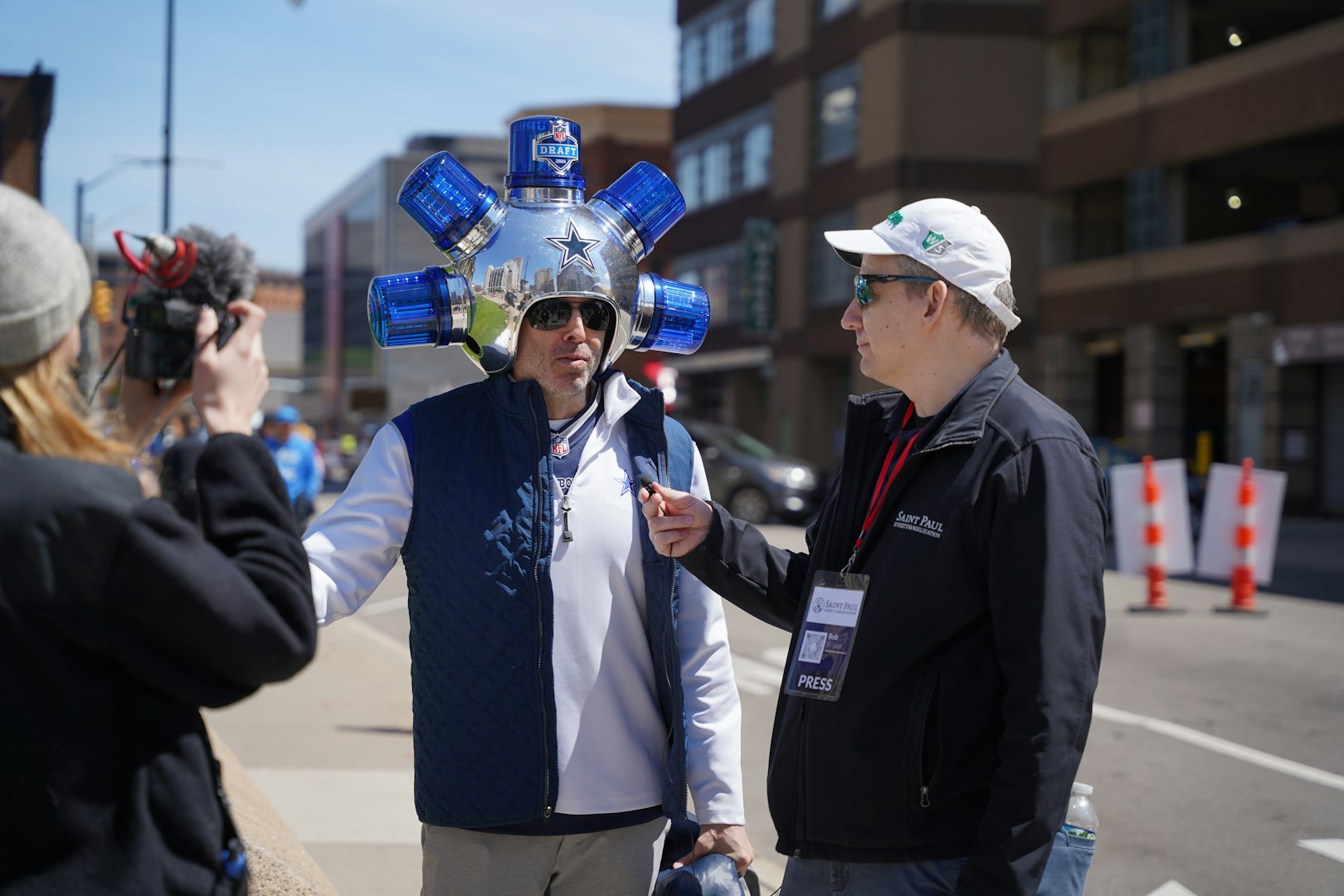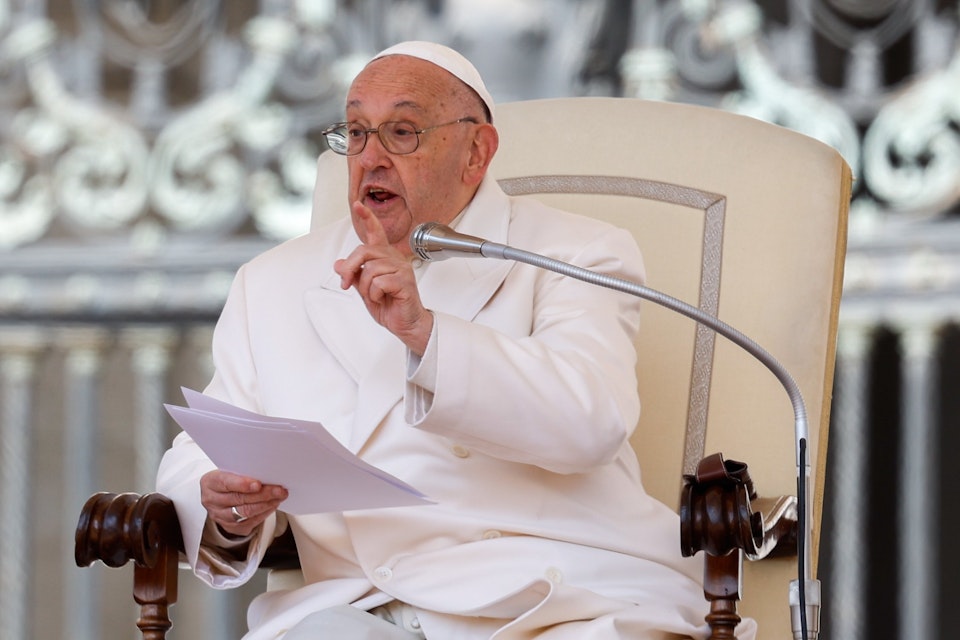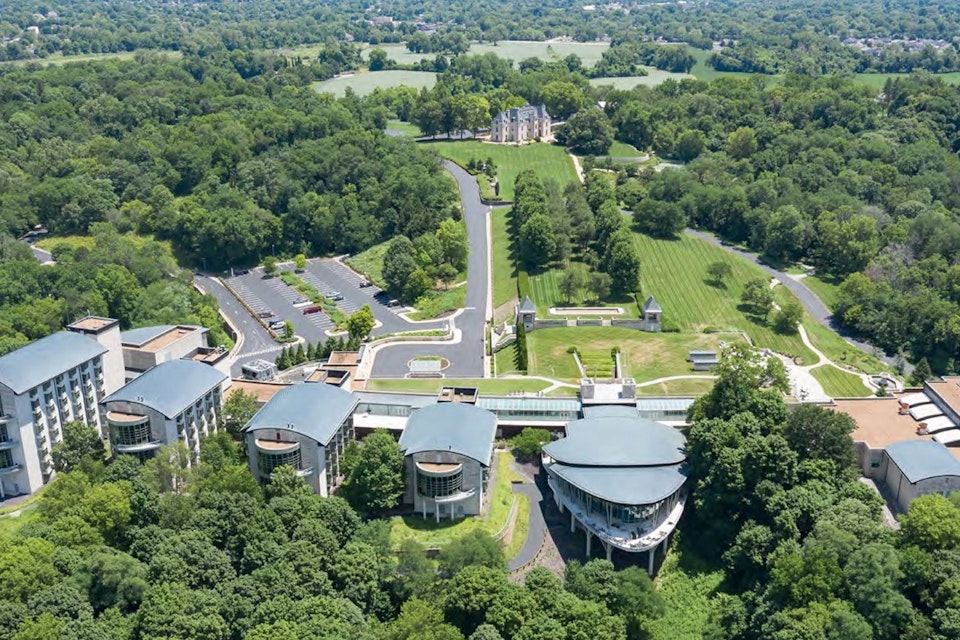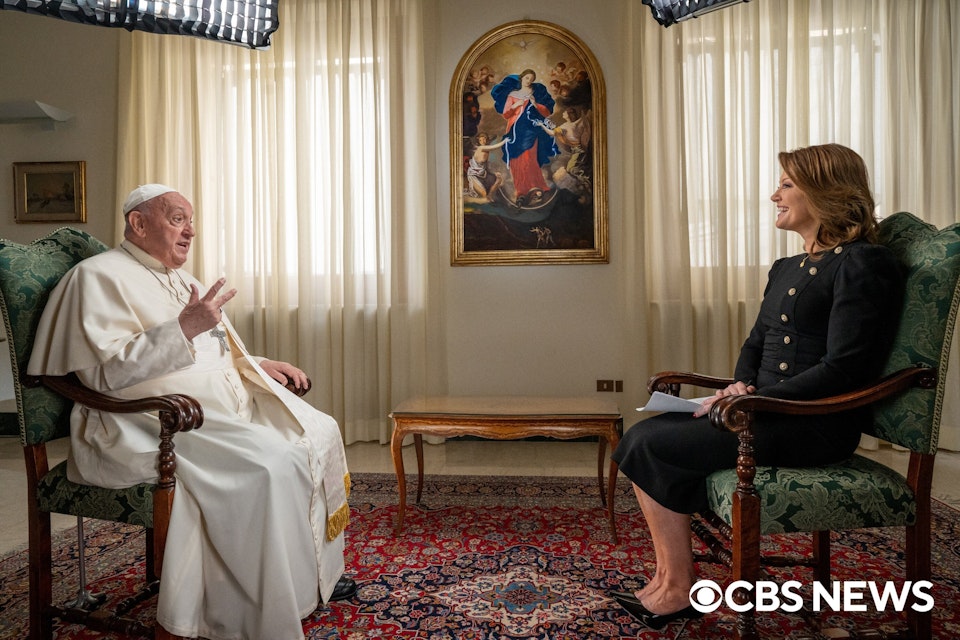As Fr. George Patau’ave prepares for training, U.S. military faces severe shortage of spiritual aid — especially for Catholics
ARMADA — For the past 10 years, Fr. George Patau’ave has served as pastor of St. Mary Mystical Rose in the rural community of Armada, taking in views of apple orchards and open fields.
In February, his view will change dramatically, possibly to the deck of an aircraft carrier or a desert in the Middle East. That’s because Fr. Patau’ave has begun officer’s training at Maxwell Training Center in Montgomery, Ala., to become a military chaplain in the Air Force.
As an Air Force chaplain, Fr. Patau’ave will serve as a priest for the Archdiocese for the Military Services, which serves more than 1.8 million U.S. men, women and children in 29 countries at military bases, in veterans hospitals, on firefighting lines, in the halls of the Pentagon and even in tents in the desert.
“I always look for opportunities to serve in different ways, and being a chaplain is a wonderful chance to assist these servicemen and women in their walk with the Lord,” Fr. Patau’ave said. “I’m eager to serve our country in this way. I believe in the freedom of religion and the freedom to live out one’s faith, and this will be my part in helping to protect that freedom.”
“I’m eager to serve our country in this way. I believe in the freedom of religion and the freedom to live out one’s faith, and this will be my part in helping to protect that freedom,” Fr. Patau’ave said.
As a chaplain, Fr. Patau’ave will celebrate Masses, administer the sacraments, and provide counseling to men and women in the Air Force, as well as their families.
The military archdiocese, which was created in 1986 by Pope St. John Paul II, typically caps the age for new chaplains at 42. At age 51, Fr. Patau’ave obtained special permission to enter training, and two years ago pursued the idea with Detroit Archbishop Allen H. Vigneron, who helped Fr. Patau’ave orchestrate the move.
“I am grateful to my archbishop for allowing me to do this,” Fr. Patau’ave said. “He has been so supportive and encouraging to me.”
Military chaplains serve for five years, at which time they may request to be assigned additional time as a chaplain or return to their own diocese.
'A spiritual force'
Msgr. Timothy Hogan, pastor of St. Fabian Parish in Farmington Hills, enlisted in the Navy in 1969. He discerned with the Oblates Order of St. Francis de Sales in 1973 and eventually entered Sacred Heart to become a diocesan priest. He was ordained in 1982 and served in parish ministry until he was recalled to active duty during the Gulf War in 1991, this time as a Navy chaplain. He has deployed to Afghanistan and spent two tours in Iraq with the Marines, retiring from active duty in 2007.

“I absolutely loved being in the Navy, just as I love my priesthood,” Msgr. Hogan told Detroit Catholic. “It’s God’s call to become a military chaplain, and when you respond to his call, there’s so much joy.”
Being a military chaplain is a multifaceted role, providing for the sacramental needs of Catholics in one’s unit and beyond, facilitating for other faith groups as needed and providing pastoral care for all military personnel through counseling and presence.
“A chaplain is different than a parish priest in the issues you’re dealing with,” Msgr. Hogan said. “Multiple deployments take men and women away from their families for a long time. You’re trying to provide sacramental care but also personal care, helping them connect with others so they’re not out there alone.”
Msgr. Hogan recalled a time when his unit was moving from Kuwait into Iraq, and a serviceman asked whether Msgr. Hogan would be “moving forward” with them. When the answer was yes, the man smiled and looked instantly relieved.
“We represent a spiritual force — the activity of God in their lives at a critical time,” Msgr. Hogan said. “Deploying with them is a profound element of being a military chaplain. You really become like a family.”
Msgr. Hogan said his first tour in Iraq “forced me to be at the top of my game” spiritually.
“If my own faith life and prayer life isn’t strong, I have nothing to give to my soldiers and sailors,” he said. “I developed a deeper awareness of the missionary approach to the ministry. They depended on me for their pastoral care.”
'Desperate' need for chaplains
In addition to physical warfare, Msgr. Hogan believes the military is a place where men learn to fight spiritual battles, too. Because of this, it can be a training ground of sorts for future priests.
In addition to his own vocation, Msgr. Hogan said two of his fellow servicemen entered the seminary the same year he did in 1973.

In fact, according to Military Services Archbishop Timothy P. Broglio in a 2015 speech to an assembly of U.S. bishops, the military is the largest single source of vocations in the country.
In 2019, 5 percent of newly ordained priests served in the military prior to ordination, and some years that number is as high as 10 percent. Of the 2019 ordinands, 17 percent reported that one or both parents had a military career.
Despite this, Archbishop Broglio noted the severe shortage of Catholic military chaplains, saying the presence of priests “has dwindled to the point of being desperate.” Although approximately 25 percent of active-duty military personnel and their immediate families are Catholic, only 8 percent of all military chaplains are Catholic.
Currently, there are 63 Catholic chaplains in the Air Force, short of the 100 the archdiocese says are needed to minister adequately. Across all branches of the military, just 201 Catholic chaplains serve, while 530 are needed.
In his speech, Archbishop Broglio urged bishops from each diocese to release at least one priest to minister to the Catholic servicemen and women from their diocese who are far from home.
“It really is imperative that every diocese have at least one (military chaplain) priest to ensure that your faithful who defend our religious freedom do not have to sacrifice theirs,” Archbishop Broglio said.
Different service, common goals
When Fr. Patau’ave completes his five-week officer’s training program, he will be a fully commissioned military officer of the United States. He then will receive his assignment from the chief of chaplains for the Air Force. Fr. Patau’ave will serve in active duty, but “only God knows where,” he said.

Born in the Samoan Islands in the central South Pacific, Fr. Patau’ave earned his undergraduate degree from Mount Angel Seminary in Portland, Ore., and returned to Samoa to teach high school. In 2001, he came back to the United States mainland — this time to Detroit — for priestly formation at Sacred Heart Major Seminary and was ordained in 2004.
It was at Sacred Heart when he first perceived a calling to military service, when a priest from the military archdiocese visited the seminarians.
Though he didn't enlist right away, the idea was always in the back of Fr. Patau’ave's mind as he served his early years as an associate pastor of Our Lady of Good Counsel Parish in Plymouth and at Our Lady of Sorrows in Farmington before arriving at St. Mary Mystical Rose as pastor in 2009.
Though military chaplains serve in different ways from a parish priest, Fr. Patau’ave notes that it’s still the same ministry of accompanying men and women in their walk with Christ.
“In the end, it’s all about Jesus,” he said.
Though he'll miss his time at St. Mary Mystical Rose, he'll always look back with fondness on the people he served in parish life — and could be back someday.
“I’m a city boy, and this parish was my first experience to be in the country,” Fr. Patau’ave said. “It was such a blessing, with loving families that welcomed me. They continue to unleash the Gospel from Armada as amazing and kind-hearted people.”









